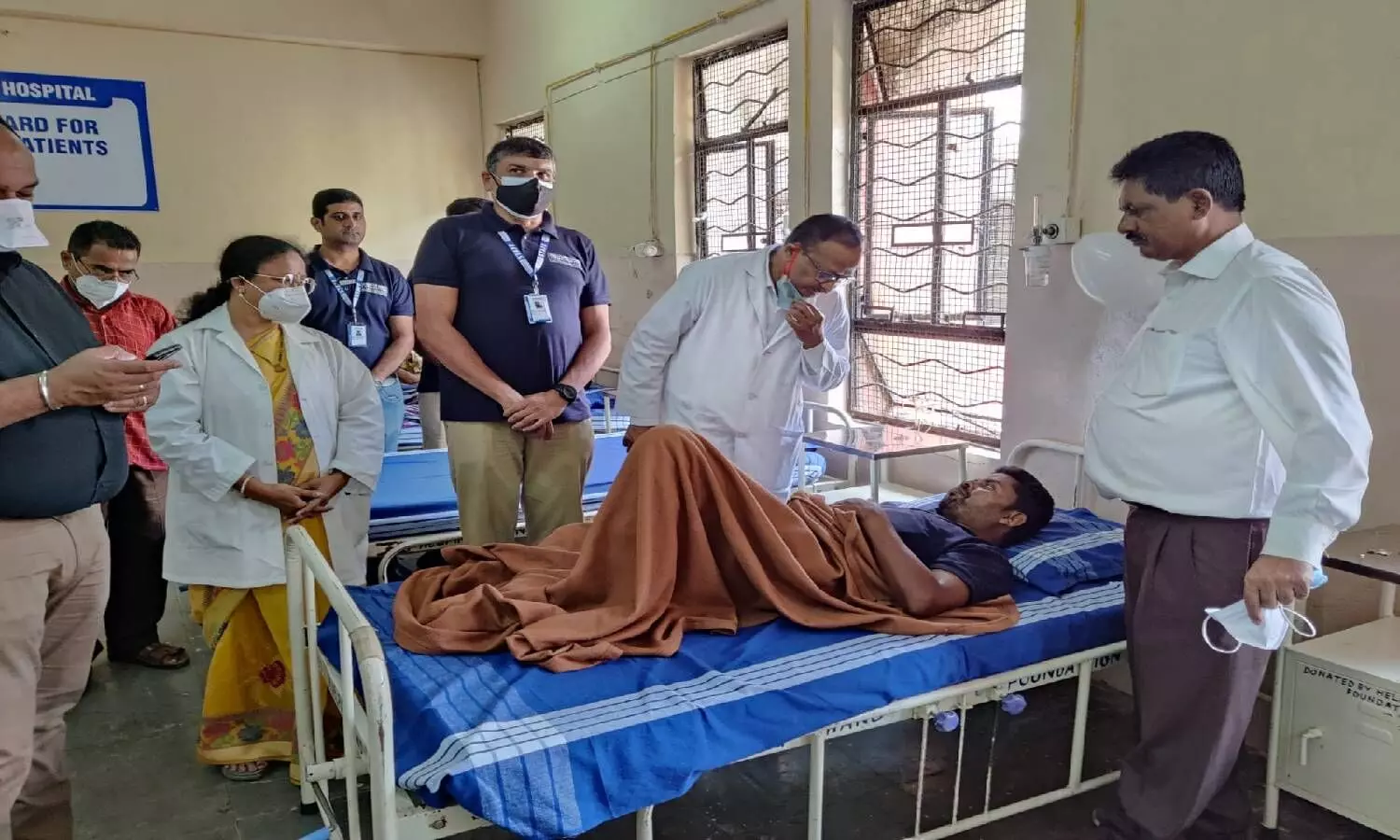20-bed special ward for homeless, destitute patients opens at OGH; first in state
For the first time in the state, a 20-bed special ward to treat and house destitute and homeless patients without a family, popularly termed as 'unknown' cases and mostly found abandoned in the hospital or brought to the hospital by the police, will now open at OGH.
By Newsmeter Network
Hyderabad: For the first time in the state, a 20-bed special ward to treat and house destitute and homeless patients without a family, popularly termed as 'unknown' cases and mostly found abandoned in the hospital or brought to the hospital by the police, will now open at OGH.
The special ward will be located on the second floor of the OPD block. It is being set up in collaboration with the NGO Helping Hand Foundation who will look after the patients while the doctors and nurses of OGH will treat them.
On a daily basis, three to four unknown cases are admitted to OGH and an equal number are picked up by the police from the streets. They are people who have been abandoned, are lonely, and with acute medical conditions that need immediate medical attention. They also need clothing, food, and care.
At present, such unknown cases are found in different corners of the hospital while others are in waiting areas and some in remote corners. The need was felt to create a separate ward to treat these people. From now, they will be moved to the special ward that was formally opened on Thursday by Dr. B. Nagender, the superintendent of OGH, in the presence of all RMOs and NGO volunteers.
Apart from those people who have been abandoned, there are several patients without attenders who suffer from trauma, injuries, and other chronic ailments who are admitted to the OGH wards. They will now be brought into the special ward for post-surgery care and medical management.
The unknown patients will be provided bedside care, clothing, daily cleaning, and assistance in feeding by NGO volunteers. Clothes and other essential items are being stocked up in the special ward and will be used as per requirement. Daily cleaning and bedside care will make it easier for doctors and nurses to attend to these patients.
Dr. Nagender said that several unknown cases come to OGH but now with the efforts of the doctors, nurses, and NGO volunteers, they can be treated, cured, and rehabilitated. He further added that those who recover after treatment will be sent to rehabilitation homes or ashrams with the help of the police and NGO.
Most abandoned and homeless patients have serious mental health issues and are acclimatized to living alone and on the streets. Care and rehabilitation for such people will always remain a challenge, said Mr. Mujtaba Hasan Askari of the Helping Hand Foundation.